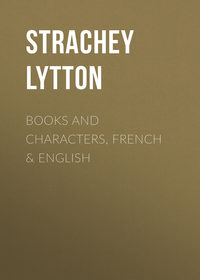Kitabı oku: «Books and Characters, French & English», sayfa 14
Bir şeyler ters gitti, lütfen daha sonra tekrar deneyin
Türler ve etiketler
Yaş sınırı:
12+Litres'teki yayın tarihi:
30 eylül 2018Hacim:
290 s. 1 illüstrasyonTelif hakkı:
Public Domain